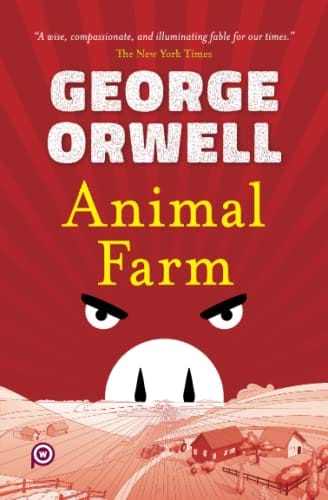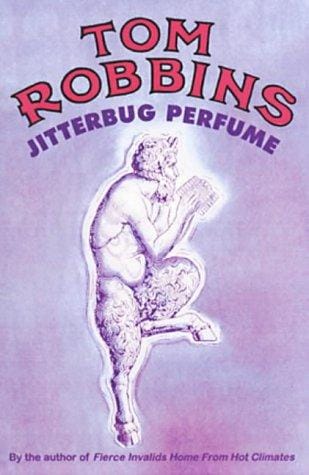Animal Farm: Plot, Themes, Allegory & Modern Relevance
A concise guide to George Orwell's Animal Farm, covering its plot, characters, themes, allegorical meaning and why the satire still matters.

Introduction
Since its publication in 1945, George Orwell’s Animal Farm has occupied a unique place in world literature. The short novel, subtitled “A Fairy Story,” uses talking barnyard animals to deliver a scathing satire of totalitarianism and the corruption of revolutionary ideals. Despite its deceptively simple surface, the book offers rich layers of meaning that reward both casual and scholarly readers. It remains one of the most frequently assigned texts in schools and continues to sell millions of copies worldwide. Whether you’re preparing for a class discussion or simply curious about Orwell’s political fable, this guide will walk you through the plot, characters, major themes, and ongoing significance of Animal Farm.
Plot Summary
Animal Farm opens on Manor Farm, where the animals suffer under the negligent farmer Mr. Jones. Inspired by Old Major, a wise boar who preaches animal solidarity, the creatures stage a successful uprising and rename the property Animal Farm. Two pigs, Snowball and Napoleon, assume leadership and draft Seven Commandments meant to guarantee equality: “All animals are equal” becomes their rallying cry. At first, productivity soars and morale is high. Soon, however, tensions grow. Snowball proposes building a windmill to ease labor, while Napoleon secretly trains nine dogs as his enforcers. When the dogs chase Snowball from the farm, Napoleon seizes power, rewrites history, and begins trading with humans. The pigs move into the farmhouse, reduce rations for other animals, and continually revise the commandments in their favor. By the novella’s final scene, the animals can no longer tell the pigs from the human farmers they once overthrew.
Key Characters
Napoleon is a Berkshire boar whose thirst for power drives the story; his methods mirror those of Joseph Stalin. Snowball, based on Leon Trotsky, is intelligent, persuasive, and idealistic, yet ultimately exiled. Boxer the cart-horse embodies the loyal proletariat; his maxims “I will work harder” and “Napoleon is always right” foreshadow his tragic fate. Squealer, the farm’s propagandist pig, twists language to justify every betrayal. Clover the mare represents maternal compassion, while Benjamin the donkey’s cynical wisdom underscores the futility of passive resistance. Finally, Old Major provides the revolutionary vision that sparks the rebellion, even though he does not live to see its outcome.
Major Themes
Animal Farm explores the corrosive nature of power. Orwell demonstrates how revolutionary leaders can become indistinguishable from the oppressors they replace once personal privilege overrides collective welfare. The novella also investigates the manipulation of language; by altering commandments and statistics, the pigs craft an alternate reality that the other animals reluctantly accept. Class stratification is another core theme: despite promises of equality, a ruling class quickly emerges, leaving the majority exploited. The work additionally critiques blind loyalty, illustrating how Boxer’s unquestioning faith enables Napoleon’s tyranny. Together, these themes serve as a warning that liberty requires constant vigilance and an informed citizenry.
Allegory and Historical Context
On one level Animal Farm functions as a retelling of the 1917 Russian Revolution and the early decades of the Soviet Union. Old Major’s ideals parallel Karl Marx’s communist theory; the farm’s rebellion echoes the overthrow of the Romanov dynasty. Snowball’s exile reflects Trotsky’s banishment, while Napoleon’s consolidation of power, forced confessions, and bloody purges evoke Stalin’s regime. Orwell finished the book during World War II, when the Soviet Union was an ally of Britain, causing publishers to fear political backlash. By disguising his critique as a farmyard fable, Orwell exposed the betrayal of socialist ideals without naming names, ensuring the message could reach a wide audience.
Why Animal Farm Remains Relevant
More than seventy years after its debut, Animal Farm continues to resonate because the mechanisms of propaganda and authoritarianism have not disappeared. Modern leaders still deploy disinformation, rewrite history, and scapegoat outsiders to secure power. Social media has amplified these tactics, making Squealer’s slippery rhetoric feel eerily contemporary. Educators assign the book to cultivate media literacy and encourage students to question official narratives. Activists cite it to warn against complacency, and corporations reference it in discussions about organizational ethics. The story endures not because farm animals talk, but because human behavior remains predictable when unchecked.
Conclusion
Animal Farm condenses a century of political lessons into a gripping tale of ambition and betrayal. By blending allegory, satire, and plain storytelling, Orwell created a timeless cautionary work that challenges every generation to defend truth and equality. Reading or rereading the novella today offers a powerful reminder that the price of freedom is eternal awareness.



